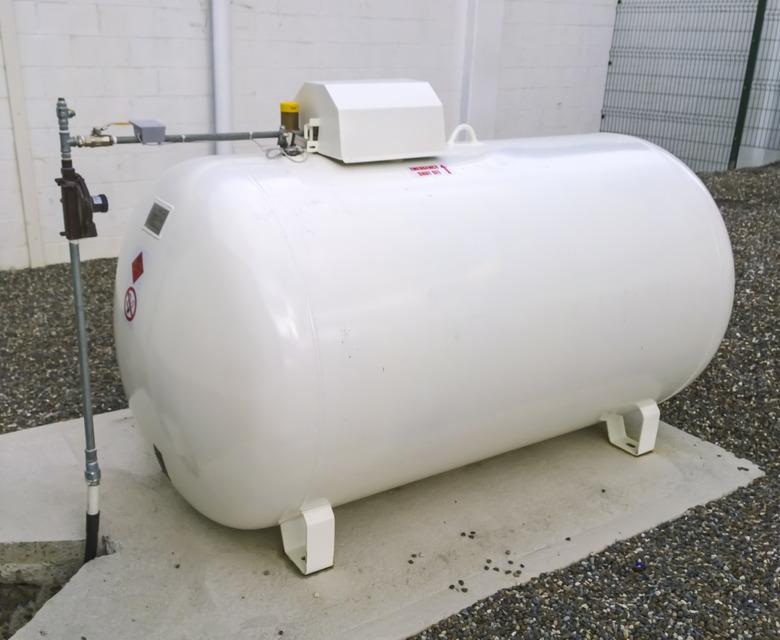How Does Cold Affect A Propane Tank Level Gauge?
Propane is considered to be one of the safest and easiest ways to heat a home. It heats more quickly than electricity, is clean and environmentally friendly compared to other fossil fuels, and the tanks are very safe because they're relatively resistant to punctures and leaks. People need to be mindful that cold temperatures can affect a propane tank level gauge no matter your propane tank size, though. The changes aren't that significant in most cases, but it's still a good idea to keep an eye on your tank during the cold-weather season.
Tip
Cold weather can cause the liquid propane volume to shrink and the tank's internal pressure to lower, making the propane tank level gauge read lower.
How Cold Temperatures Affect Propane
Propane systems don't require much more than routine maintenance and fill-ups, but as you get closer to the winter, you need to pay more attention to your propane tank. Propane freezes at -306 degrees Fahrenheit, so you shouldn't have to worry about your propane freezing, but colder temperatures can cause the volume of the liquid propane to shrink.
When temperature increases, a tank's propane volume increases and when the temperature decreases, the tank's propane volume decreases. The industry standard is 60 F for liquid propane volume correction, so if you're experiencing a considerable temperature drop, say over 20 F, the level gauge will show less propane in the tank. That's why it's essential to keep up with maintenance and fills by an experienced delivery technician who will know how to check and fill your tank according to cold-weather changes.
How to Avoid Tank Problems
There are two major things you want to do when the cold-weather season rolls through: Keep your tank full, and if your home propane tank is above ground, don't cover it. When your tank is full, there will be more volume of propane. If there is more volume of propane in your tank, you'll be less likely to experience shrinkage issues because the delivery company will have taken into account temperature shifts when filling up your tank.
For people with tanks above ground, you may be tempted to cover it with a tank cover, but it's advised never to do this. If you live in an area with a lot of snow or rain, snow and ice can build up on the tank. When snow and ice buildup, this can hinder sunlight from keeping the tank warm. If your tank doesn't get sunlight and gets cold, the pressure loss can be worse than it would be if sunlight warms the tank.
Propane Delivery Tips
Working with a reputable company will eliminate the guessing game of dealing with propane heating in the winter. Not only will the company have the right equipment to measure when you need refills, but they'll also be able to adjust for cold temperatures when they're refilling your tank. They will also be a lifesaver if you need to know the tank's life expectancy or if something goes wrong with your tank.
The company will even be able to help if you need an emergency refill during the cold winter months. Hiring a company that meets your needs will help ensure your safety and the safety of others around you not only in the cold winter months but year-round.
